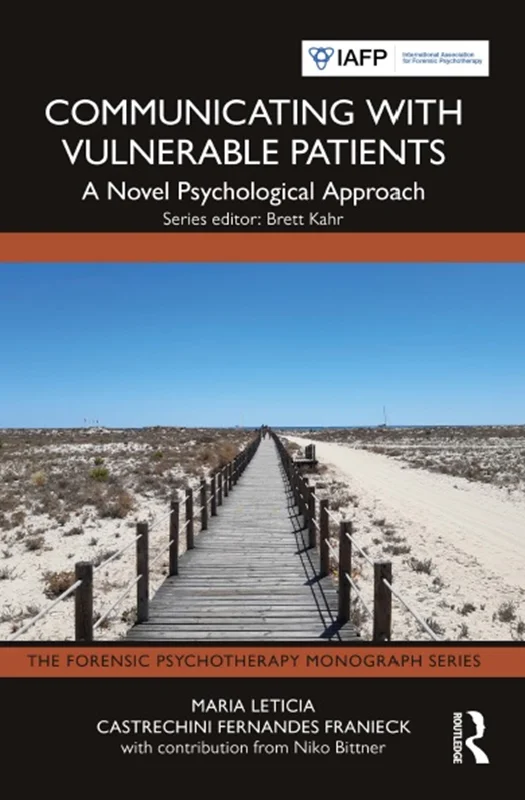Communicating with Vulnerable Patients: A Novel Psychological Approach
Maria Leticia Castrechini Fernandes Franieck, 978-1-032-14041-4, 9781032140414, 978-1032140414, 978-1-032-14042-1, 9781032140421, 978-1032140421, 978-1-003-23208-7, 9781003232087, 978-1003232087, 1032140429, 1032140410, B0BQ5WNBB9
English | 2023 | PDF | 15 MB | 262 Pages
Communicating with Vulnerable Patients explores ways to improve the communication process between highly vulnerable patients and the therapist, based on the assumption of the permanent presence of an ‘outsider’ or potential space in the communication field between them. In this space, the therapist and highly vulnerable patients can undergo transitional states of mind established between and within their relationship.
Leticia Castrechini-Franieck, also known as Maria Leticia Castrechini Fernandes Franieck, presents practical methods to overcome communication issues and engage therapeutically with highly vulnerable patients suffering from personality disorders, addiction, and trauma, as well as with deprived children. Communicating with Vulnerable Patients is presented in five parts, with Part one focused on building communication through a Transient Interactive Communication Approach (TICA) and Part two applying TICA in forensic settings with five case studies illustrating the approach in a range of contexts. Part three considers TICA in intercultural settings, including work with refugees, and Part four outlines adaptations of the approach, including T-WAS (Together We Are Strong), which aims to avoid an increase of antisocial behavior in deprived children, and the use of TICA in the COVID-19 pandemic. The book concludes in Part five with reflections on outcomes and limitations of both TICA and T-WAS.
Communicating with Vulnerable Patients will be invaluable reading for professionals, psychotherapists, group therapists, and group analysts working with at-risk populations.

